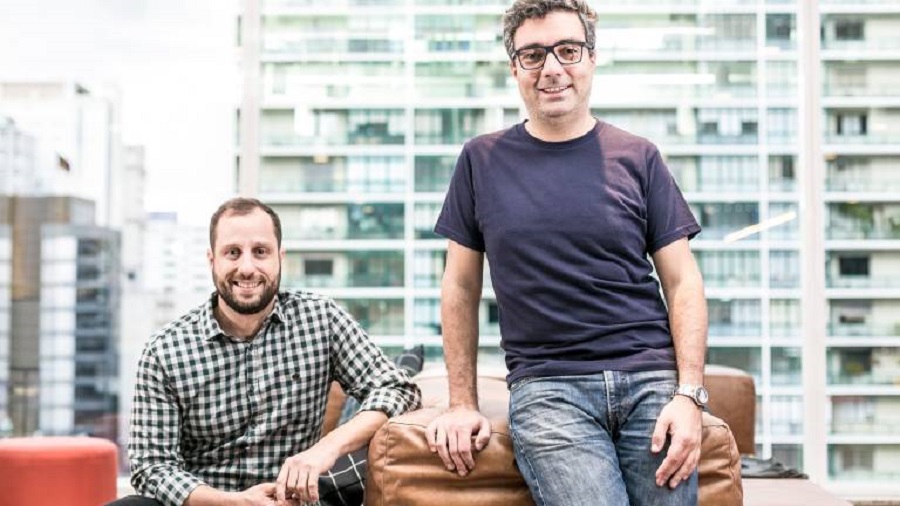RIO DE JANEIRO, BRAZIL – A round of US$300 million will fund the development of more tools for those who rent, buy or sell real estate. The startup will also expand to Mexico.
QuintoAndar has quadrupled its market value in 2 years. The startup for renting, buying or selling properties is now worth US$4 billion after a new investment round. It was US$300 million in a series E round.

The investment was led by Ribbit Capital, a Silicon Valley-based fund that specializes in fintechs. Ribbit Capital’s portfolio includes businesses such as Brex, Coinbase, ContaAzul, Cora, and Robinhood. Other funds involved were Alta Park, Dragoneer, Kaszek Ventures, LTS, Maverick, Qualcomm, and SoftBank Latin America Fund. In all, QuintoAndar has raised over US$600 million in investments.
“Ribbit is growth focused and usually looks at early stage companies. The leadership in this round shows that in five to ten years we will have a very significant company that can multiply the current market value,” said Gabriel Braga, co-founder of QuintoAnda about the new investment.
Ordeal during pandemic
The last round had been made in 2019. Gabriel Braga said that this time investor interest exceeded the maximum funding limit – an oversubscribed offering. “We were pleased with the market’s receptiveness. The increase in valuation reflects both the results we have had in the past year and the future expectation about the company,” Braga says.
The world has been coexisting with the novel coronavirus pandemic for more than a year – and the property startup’s (proptech) business model has been put to the test. QuintoAndar’s differential is that it does not demand guarantees such as a co-signer or surety bond from renters, while it assures property owners that rent will be paid on time, even if the tenant defaults.
In the first half of 2020, R$50 million were disbursed to cover rent arrears. Defaults rose – but not to the level projected by the startup in its doomsday scenarios. The model “came to a halt” and the startup “returned to normal levels of default and leases and purchases as of July,” Braga said. That same year, the company inaugurated its real estate buying and
selling front.
Since then, QuintoAndar has grown its reach. On the rental front, the proptech has more than 100,000 contracts under management in 40 Brazilian cities. Each month, 10,000 more properties are rented on the platform.
On the property acquisition front, there are 60,000 properties in Belo Horizonte, São Paulo, Porto Alegre, and Rio de Janeiro. Some 8,000 purchase and sale transactions take place per year, in annualized terms (value seen in the last month x 12).
“These figures position us more ambitiously for the future: to be the first place to go when a person thinks about housing,” says Braga.
QuintoAndar with an additional US$300 million
QuintoAndar will use the new resources to develop new products on the rental and property purchase fronts.
In renting, the proptech expects to grow within the 40 cities in which it operates and expand into new regions. It will also develop targeting of its rental offering, to better serve parts of the market with specific needs. “There are owners of many properties or who live offline, or tenants who need more flexibility in their contracts,” says Braga.
In buying and selling, QuintoAndar is looking to expand to the cities where it operates with rentals. “At the moment, we leverage the brand we have built in renting to boost buying and selling. But we intend to innovate in this transaction and cause the same rupture seen with the end of the co-signer and surety bonds in rentals,” says Braga.
This new product development starts with trend analysis. Globally, QuintoAndar’s co- founder sees global trends such as sharing properties; renting for a period of time before buying; and differentiated offers for those who buy a property with a view to future rental income. “We are in a process of understanding customers’ needs. The limited access to housing slows that market down.”
In addition to product development, QuintoAndar will also use the funds for international expansion in the coming months. The first destination will be Mexico. “Other parts of Latin America have many similarities with the Brazilian market. And Mexico is the largest market in the region after Brazil,” says Braga.
With the entry of several technology companies onto the B3 stock exchange, relevant rounds in startups trigger an alert for a potential initial public offering (IPO) in the following years. “We think about eventually doing an IPO, but we don’t have a set date. But we like the benefits of being publicly validated and showing more of what we do,” says the co-founder.
QuintoAndar currently has 2,000 employees. Although it does not have a specific hiring goal, the startup’s plan is to hire experienced product and technology employees to level up its teams.
“These professionals are scarce in the country, since few companies have followed a path similar to ours. We are opening the range to global talent, bringing in people who have experienced the challenges of scaling a company and can adapt them to
QuintoAndar’s context. The flexibility of a remote model and hybrid future makes such hiring easier,” says Braga.
QuintoAndar is not disclosing specific growth targets for 2021. “But we are on a good trajectory and our culture is to beat the goal and then raise it. It’s a continuous expansion cycle that has worked in recent years and built credibility among investors.”

